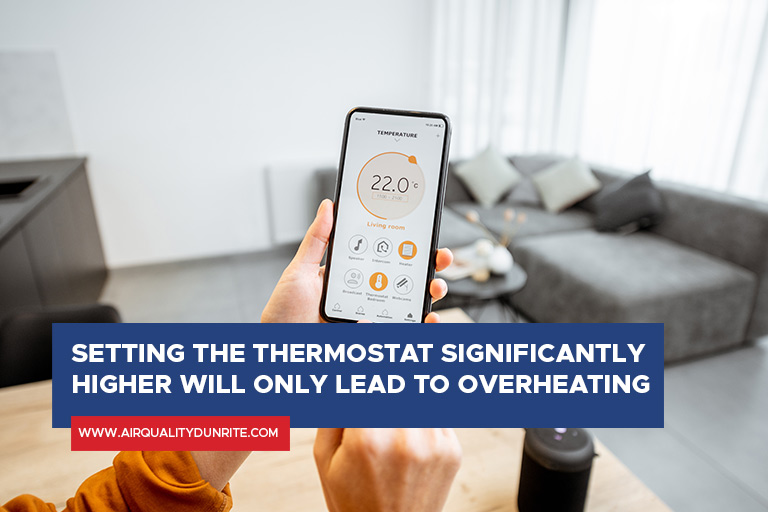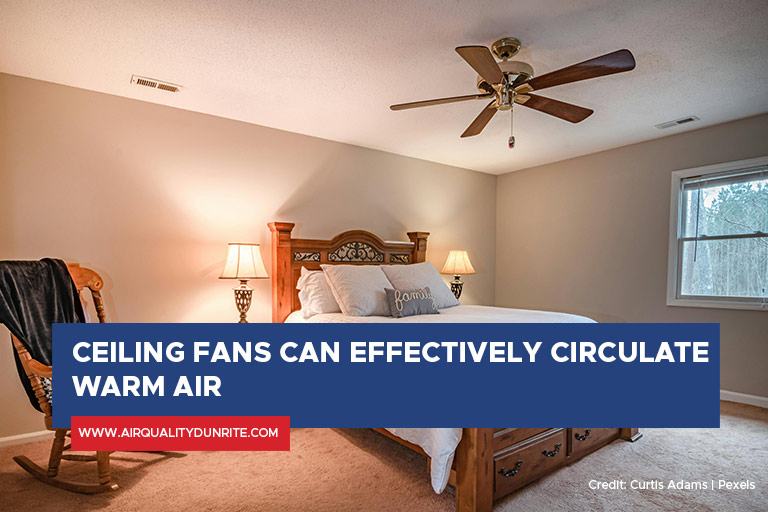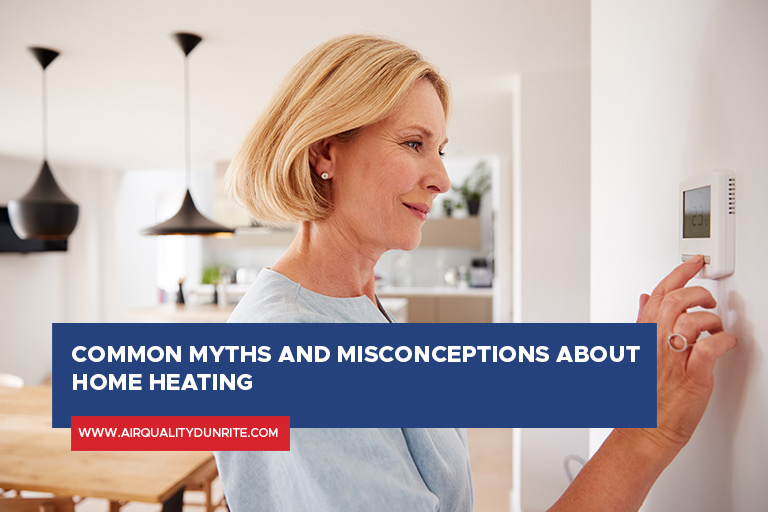In the quest for efficient and cost-effective home heating, homeowners often encounter a myriad of myths and misconceptions. These falsehoods can lead to poor decision-making, resulting in unnecessary expenses and inefficient energy use. This article aims to debunk some of the most prevalent myths surrounding home heating, providing clarity and insight to those looking to optimize their home’s warmth and comfort. From misunderstandings about heat pump efficiency in cold climates to misconceptions about thermostat settings, we explore the facts behind the fiction.
Myth 1: Cranking up the Thermostat Heats the Home Faster

The thermostat setting does not influence the speed at which your home heats up. Most heating systems deliver heat at a constant rate, regardless of the thermostat setting. Setting the thermostat significantly higher than your desired temperature won’t heat your home faster; it will only lead to overheating and increased energy bills.
Myth 2: Heat Pumps Don’t Work in Cold Climates
Modern heat pumps are designed to be effective even in cold climates. Thanks to advances in technology, heat pumps can extract heat from outdoor air at much lower temperatures than older models. In regions like Toronto, homeowners can benefit from a heat pump rebate, making this energy-efficient option more accessible and affordable.
Myth 3: Electric Heaters are More Efficient Than Central Heating Systems
Efficiency depends on various factors, including the size of the space and insulation quality. While electric heaters can be efficient for heating small, isolated areas, central heating systems are typically more effective and efficient for heating larger spaces due to their ability to distribute heat evenly.
Myth 4: Keeping the Heater on Low All Day is More Efficient Than Turning It Off and On
This myth depends on your heating system and insulation quality. For many homes, it’s more energy-efficient to only heat the home when occupied. Programmable thermostats can optimize heating schedules, ensuring comfort while minimizing energy waste.
Myth 5: Fireplaces are an Efficient Way to Heat Your Home
While fireplaces can provide a cozy atmosphere, they are not an efficient way to heat your home. A significant amount of heat escapes through the chimney, and they can even draw heat out of the room. For efficient heating, consider other options like modern heat pumps or high-efficiency furnaces.
Myth 6: Closing Vents in Unused Rooms Saves Energy
Closing vents in unused rooms can actually increase energy consumption by disrupting normal airflow and making your heating system work harder. It’s better to leave vents open to maintain balanced air pressure and efficient system operation.
Myth 7: Space Heaters are a Cheaper Alternative to Central Heating
While space heaters can be useful for heating small areas temporarily, they are generally not a cost-effective way to heat your entire home. They consume a lot of electricity and can pose safety risks if not used properly. For whole-home heating, central heating systems are usually more efficient.
Myth 8: Insulation is Only Important for Keeping Warm in Winter
Insulation plays a critical role in maintaining your home’s temperature year-round. In addition to keeping heat in during the winter, it also keeps your home cool in the summer by preventing cool air from escaping. Proper insulation is key to energy efficiency and comfort in every season.
Myth 9: Ceiling Fans are Only Useful in Summer

Ceiling fans can be used effectively in winter to circulate warm air. By setting the fan to spin clockwise at a low speed, you can push warm air down from the ceiling without creating a draft. This can help improve heating efficiency and comfort.
Myth 10: Manual Thermostats are Just as Good as Programmable Ones
Programmable thermostats offer significant advantages over manual ones. They allow you to set your heating system to turn on and off based on your schedule, reducing energy consumption when you’re not home and ensuring comfort when you are. Upgrading to a programmable thermostat can lead to substantial energy savings.
Myth 11: Older Homes Can’t Be Made Energy Efficient
While older homes may have challenges such as less insulation and older windows, there are many upgrades that can improve energy efficiency. Adding insulation, sealing leaks, and updating heating systems can significantly reduce energy usage and improve comfort.
Myth 12: All Heating Systems are Essentially the Same
Heating systems vary widely in terms of efficiency, cost, and suitability for different climates and home types. Research and professional advice can help homeowners choose the system that best meets their needs, whether it’s a high-efficiency furnace, heat pump, or another option.
Myth 13: DIY Maintenance is Just as Effective as Professional Services
While regular homeowner maintenance, such as changing air filters and clearing vents, is crucial for efficient heating system operation, professional maintenance services offer benefits that DIY efforts cannot match.
- Expertise: Professionals possess the expertise and tools to thoroughly inspect, diagnose, and repair complex heating system issues that might be beyond the scope of most DIYers.
- Safety: Heating systems, especially those that rely on gas or oil, can pose serious safety risks if not properly maintained. Professionals know how to handle these systems safely, reducing the risk of accidents.
- Efficiency: A professional service can ensure your heating system operates at optimal efficiency. Technicians can identify and rectify issues that might not be apparent to the untrained eye, such as minor leaks or inefficiencies in ductwork.
- Longevity: Regular professional maintenance can extend the lifespan of your heating system by preventing wear and tear and addressing minor issues before they escalate into major problems.
Understanding the realities behind common home heating myths is essential for making informed decisions about your home’s heating system. By debunking these misconceptions, homeowners can optimize their heating strategies, improve comfort, and reduce energy costs. For residents in Toronto considering a heat pump, remember that rebates may be available to make this energy-efficient option more attainable.
For expert advice on optimizing your home heating, contact Air Quality Dunrite at (416) 342-1939. Our team can provide tailored solutions to ensure your home is warm, comfortable, and energy-efficient this winter.



